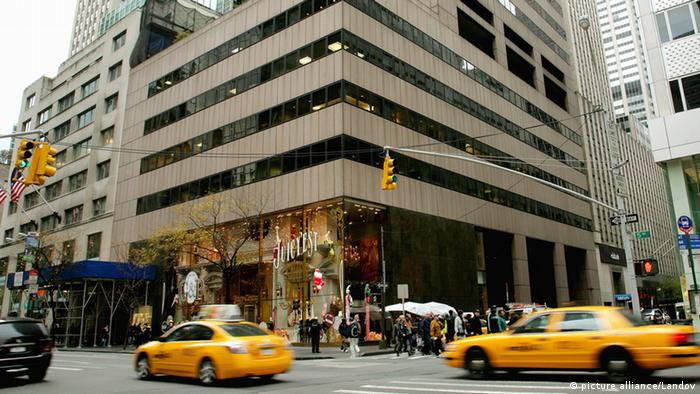Primer: Under the International Emergency Economic Powers Act, executive orders and U.S. Department of Treasury regulations, the violations were clear and Barack Obama, Hillary Clinton and John Kerry chose to ignore all of this due to the back channel negotiations regarding the Iranian nuclear deal that was launched.
Iran Sanctions and Real Estate Investments in the U.S.
Trump inherited Bank Melli, one of Iran’s largest state-controlled banks, as a tenant when he purchased the General Motors Building on Fifth Avenue in Manhattan, according to public records reviewed by the International Consortium of Investigative Journalists and the Center for Public Integrity. The Trump Organization kept the bank on as a tenant for four more years after the U.S. Treasury Department designated Bank Melli in 1999 as being controlled by the Iranian government.
U.S. officials later alleged that Bank Melli had been used to obtain sensitive materials for Iran’s nuclear program. U.S. authorities also alleged that the bank had been used between 2002 and 2006 to funnel money to a unit of the Iranian Revolutionary Guard that has sponsored terrorist attacks — a period that overlapped with the time the bank rented office space from Trump. More here.
Hold on…..there are the Clinton’s interaction in this too. The Alavi Foundation bank accounts were held at Bank Melli.
Clintons Received Money from ‘Front for the Government of Iran’
As President Barack Obama and Secretary of State John Kerry close in on a nuclear deal with Iran, it’s worth remembering that the Bill, Hillary, and Chelsea Clinton Foundation received money from “a front for the government of Iran” called the Alavi Foundation.
The front gave the Clintons $30,000 between April 2005 and March 2006, according to tax forms. This occurred years after law enforcement officials tied the group to Iranian radicals. “The center is funded by the New York-based Alavi Foundation, which law enforcement officials say is closely tied to the mullahs who dominate Iran,” the Washington Post reported in 2003. More here.
By the way, it goes beyond New York: Assets of the Alavi Foundation and Assa Corp., including bank accounts owned by 650 Fifth Avenue Company, the Alavi Foundation and Assa Corp.; and properties owned by the foundation are located in New York, Maryland, Virginia, Texas and California. Some are Iranian owned and managed mosques. More here.
 DW
DW
NEW YORK— A jury in New York on Thursday found that the U.S. government may seize a Manhattan office building from a nonprofit foundation accused of violating U.S. sanctions against Iran.
The jury in a Manhattan federal court said the Alavi Foundation, majority owner of an office tower at 650 Fifth Avenue, knew that its partner and the building’s minority owner, Assa Corp, was a front for Iran, and helped conceal the fact.
Jurors said the government had proven that the property was involved in or traceable to money laundering.
The government wanted to seize the 36-story building, which could be worth nearly $1 billion, to benefit people with legal judgments against Iran relating to bombings and other attacks.
“In this trial, 650 Fifth Avenue’s secret was laid bare for all to see,” said Acting U.S. Attorney Joon Kim in Manhattan, whose office represented the government.
“The Alavi Foundation is disappointed by today’s verdict and by the court’s decision in the related cases and is considering its options,” said John Gleeson, a former federal judge who represented the foundation at trial.
Alavi was founded in 1973 as the Pahlavi Foundation by the then-Shah of Iran, Mohammad Reza Pahlavi. It describes its mission as promoting the study of Persian and Islamic culture in the United States, and also funds schools and free clinics.
The tower at 650 Fifth Avenue was built at the shah’s behest in 1978 to provide a source of income. After the Islamic Revolution in 1979 that ousted the shah, Iran’s new government replaced much of Alavi’s board of directors.
In 1989, Alavi entered into a partnership with Iran’s state-controlled Bank Melli under which Alavi owned a majority share of the building, and the bank owned the rest through a subsidiary, Assa.
The case turned on whether Alavi knew that Assa was still owned by Bank Melli after the United States imposed sanctions on Iran in 1995.
Lawyers for the government argued that it did, but kept distributing rental income to Assa anyway, while working to conceal its ownership from U.S. authorities.
Gleeson argued that the foundation was led to believe that Bank Melli was sold before the sanctions took effect.
